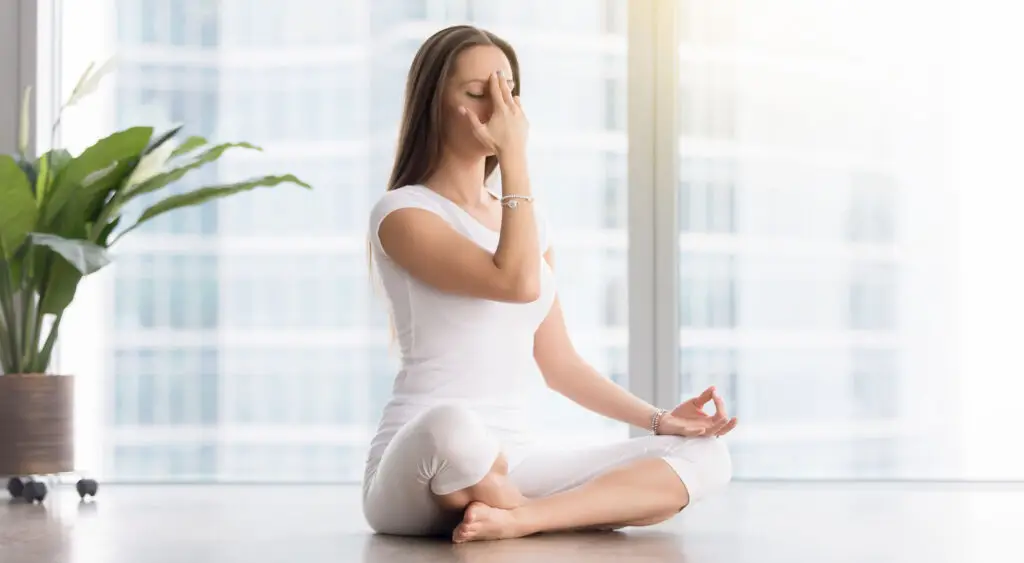10 Simple Ways to Master Stress-Reduction and Anxiety in Sarasota
In today’s fast-paced world, the challenges of stress-reduction and anxiety are more prevalent than ever, affecting millions of individuals across the globe. Navigating these challenges is crucial for achieving a healthier, more fulfilling life. For the communities in Sarasota, Tampa, and the broader Florida region, embracing effective stress-reduction and anxiety management techniques can significantly enhance daily living.
This blog post delves into ten simple yet impactful strategies designed to alleviate stress and anxiety, steering you towards a more serene state of mind. For those in search of professional assistance, McNulty Counseling and Wellness extends a comprehensive suite of services, meticulously crafted to address your unique needs, whether through in-person sessions in Sarasota and Tampa or via virtual counseling accessible throughout Florida.
1. Embrace Mindfulness Meditation:
Mindfulness meditation is a practice that encourages the individual to focus on the present moment, acknowledging and accepting thoughts, feelings, and sensations without judgment. This form of meditation draws from ancient traditions and has been validated by contemporary psychology as a powerful tool for reducing stress and anxiety. Engaging in mindfulness meditation can help dismantle the cycle of chronic stress by fostering a state of calm awareness.
Practicing mindfulness can significantly lower stress levels, enhance emotional regulation, and improve overall mental health. Regular meditation sessions can lead to changes in the brain associated with decreased anxiety and increased well-being. Starting with just a few minutes a day, individuals can use techniques such as focused breathing, body scans, or guided meditations to cultivate mindfulness. The key is consistency and patience, as the benefits of mindfulness meditation accumulate over time, offering a profound and lasting impact on one’s mental health.

2. Incorporate Physical Activity:
Regular physical activity is a cornerstone of good health, offering extensive benefits that extend beyond physical fitness. Exercise acts as a natural antidote to stress, releasing endorphins — the body’s natural mood elevators. Activities like walking, yoga, and swimming not only strengthen the body but also promote mental clarity and resilience, helping to buffer the effects of stress and anxiety.
Incorporating physical activity into daily life doesn’t require exhaustive workouts at the gym. It’s about finding enjoyable activities that fit into your schedule and lifestyle. Whether it’s a brisk walk in the park, a yoga session at home, or a swim in the local pool, the goal is to move your body consistently. Regular exercise improves sleep quality, enhances mood, and reduces symptoms of anxiety and depression, making it an essential strategy for stress management.
3. Establish a Balanced Diet:
A balanced diet plays a critical role in managing stress and anxiety. Foods that are rich in vitamins, minerals, and antioxidants can combat the physiological effects of stress by strengthening the immune system, lowering blood pressure, and improving mood. Incorporating a variety of fruits, vegetables, lean proteins, and whole grains into meals can provide the necessary nutrients for optimal mental health.
Mindful eating practices, such as paying attention to hunger cues and eating without distraction, enhance the benefits of a balanced diet. Avoiding excessive caffeine and sugar, which can exacerbate anxiety and lead to energy crashes, is also crucial. Planning meals and snacks that are nutrient-dense and balanced can help stabilize mood, and increase energy levels, and stress-reduction responses.
4. Limit Caffeine and Alcohol:
Caffeine and alcohol, while socially popular, can significantly impact anxiety levels and sleep quality. Caffeine, a stimulant, can increase heart rate and exacerbate feelings of anxiety and jitteriness. Alcohol, though initially sedative, disrupts sleep patterns and can increase anxiety as its effects wear off.
Limiting intake of these substances can lead to noticeable improvements in anxiety symptoms and sleep quality. For those accustomed to multiple cups of coffee a day, gradually reducing consumption and exploring caffeine-free alternatives like herbal teas can be beneficial. Similarly, limiting alcohol consumption and exploring relaxation techniques can improve sleep and reduce anxiety.
5. Develop Healthy Sleep Habits:
Adequate sleep is fundamental to managing stress effectively. Sleep and stress have a bidirectional relationship; high stress can lead to sleep disturbances, and poor sleep can increase stress levels. Developing healthy sleep habits, such as establishing a consistent sleep schedule and creating a restful environment, can enhance sleep quality and, in turn, stress-reduction.
Creating a bedtime routine that promotes relaxation, such as reading or gentle stretching, can signal to your body that it’s time to wind down. Avoiding screens and heavy meals before bed can also improve sleep quality. For those struggling with sleep, techniques like progressive muscle relaxation or guided sleep meditations may offer additional benefits.
6. Practice Deep Breathing Techniques:
Deep breathing exercises are a cornerstone of stress management, directly influencing the autonomic nervous system to induce a state of calm. Techniques like diaphragmatic breathing, where one breathes deeply into the belly rather than shallowly into the chest, can lower the heart rate and blood pressure, signaling the body to relax. This simple yet effective practice can be a quick fix for stressful moments and, when practiced regularly, a long-term solution for managing anxiety.
Learning and practicing deep breathing can be straightforward. Start by finding a quiet place where you can sit or lie comfortably. Place one hand on your belly and the other on your chest. Inhale slowly through your nose, feeling your belly rise more than your chest. Exhale slowly through your mouth or nose, whichever feels more comfortable, fully engaging your core to empty your lungs. This practice can be done for just a few minutes a day to yield significant benefits, providing a tool that can be used anytime and anywhere to find calm.

7. Connect with Nature:
The natural world offers a unique and powerful form of stress-reduction that can improve mental well-being. Research suggests that spending time in nature, whether it’s in a park, forest, or beach, can reduce feelings of stress and anxiety, lower blood pressure, and improve mood. The sights, sounds, and smells of the outdoors can engage our senses in a way that promotes relaxation and mindfulness.
Incorporating nature into your routine doesn’t have to be time-consuming or difficult. It can be as simple as taking a short walk in a local park, gardening, or even spending a few moments outside during a break. For those with more time, planning regular hikes or outdoor activities can offer deeper connections with nature and further stress reduction benefits.
8. Seek Social Support:
Social support is an essential component of stress management and mental health. Strong relationships with friends, family, or community members can provide emotional support, reduce feelings of isolation, and offer a sense of belonging. Sharing concerns or stresses with others can lead to practical advice, empathy, and shared experiences that can lighten emotional loads.
Building and maintaining a supportive network requires effort and time. It can involve reaching out to old friends, participating in community activities, or joining groups with similar interests. Regularly scheduling time to connect with others, whether in person or virtually, can strengthen these bonds and provide a reliable support system for managing stress.
9. Engage in Creative Activities:
Creative expression offers a unique avenue for managing stress and anxiety. Activities like painting, writing, or playing music allow for the expression of feelings and thoughts that might be hard to articulate otherwise. This form of expression can serve as a distraction, helping to take your mind off stressors, and as a form of meditation, focusing your mind on the task at hand and away from worries.
Engaging in creative activities doesn’t require expertise or talent. The key is to find joy and release in the process, not to achieve a specific outcome. You can start small by doodling, journaling, or experimenting with musical instruments. Setting aside dedicated time each week for creative pursuits can help develop a fulfilling routine that counters stress.
10. Learn to Say No:
Learning to say no is a crucial skill for managing stress-reduction and preventing burnout. It involves recognizing your limits and communicating them to others. Taking on too many responsibilities can lead to feelings of overwhelm, anxiety, and stress. By setting boundaries, you protect your time and energy, allowing you to focus on what truly matters.
Start small by declining requests that you know will overextend you or that don’t align with your priorities. Be clear and polite in your refusal, and remember that it’s okay to prioritize your health and well-being. Practicing self-reflection to understand your limits and communicating them effectively to others can build confidence in your ability to maintain healthy boundaries.
Conclusion:
Implementing these ten simple strategies for stress-reduction and anxiety management can profoundly impact your life, fostering a more balanced and fulfilling existence. Nonetheless, should you find yourself grappling with persistent or overwhelming challenges, seeking professional support becomes imperative. McNulty Counseling and Wellness, with its base in Sarasota and services extending to Tampa and through virtual counseling across Florida, is equipped to meet diverse individual needs.
Our team of licensed therapists is committed to delivering compassionate care, aimed at assisting you through life’s difficult junctures. We understand the complexities of navigating stress-reduction and anxiety and are here to offer the support and guidance necessary for overcoming such obstacles. If you or someone you know needs assistance, we encourage you to reach out. McNulty Counseling and Wellness is more than a counseling center; it’s a beacon of hope for those seeking to reclaim their peace of mind and embark on a journey toward healing.
Contact Us:
McNulty Counseling and Wellness is here to support you on your journey toward mental well-being. For more information about our services or to schedule a consultation, visit our website at mcnultycounseling.com/. You can also call or text us at 727-344-9867 or email Admin@McNultyCW.com. Let us help you start your healing journey today.







